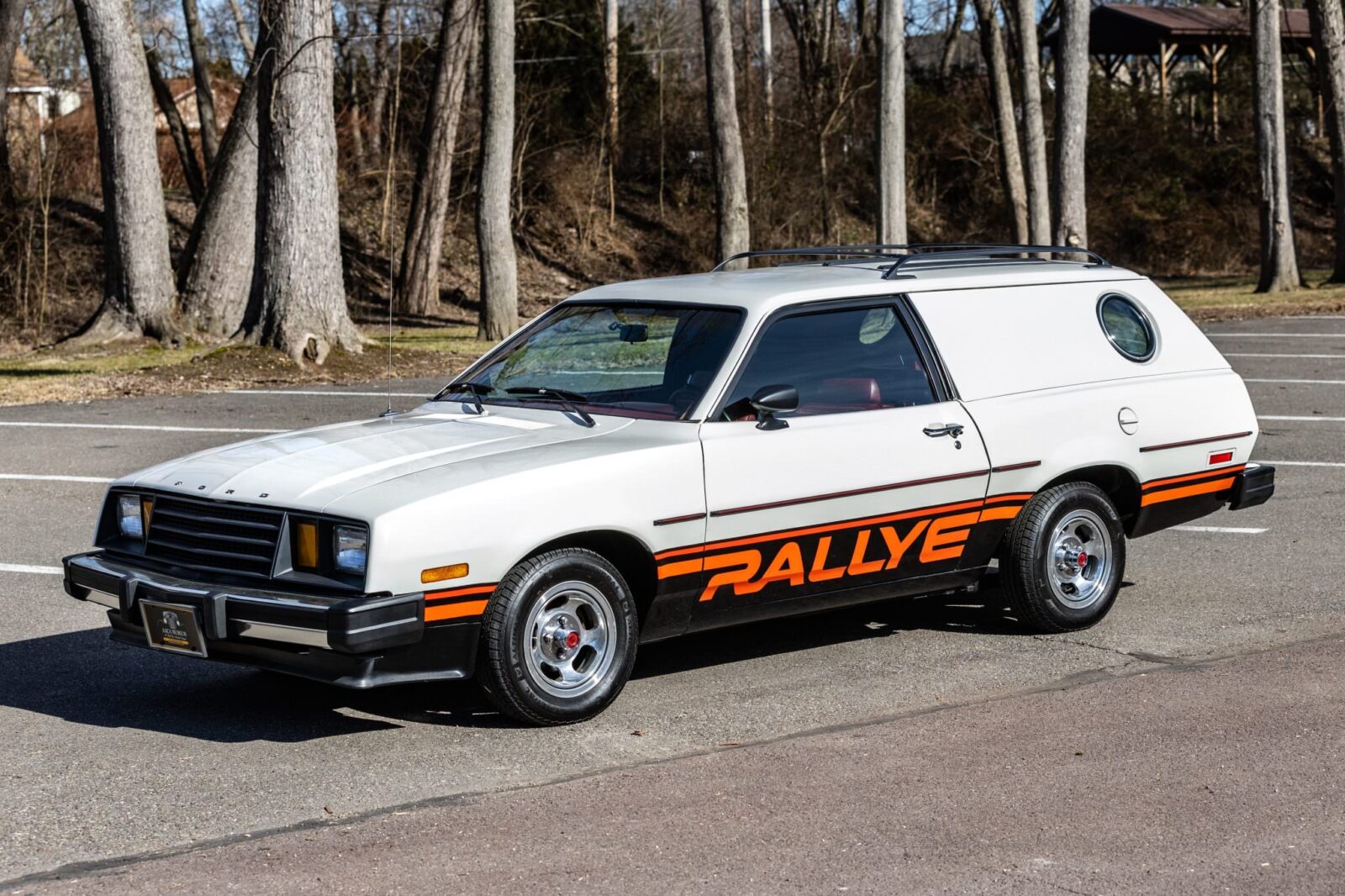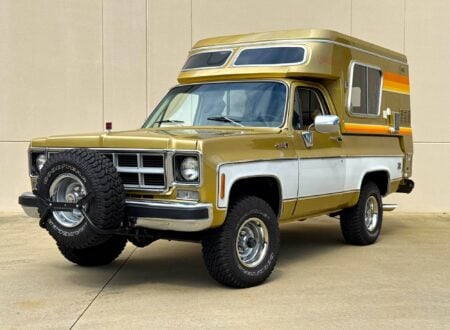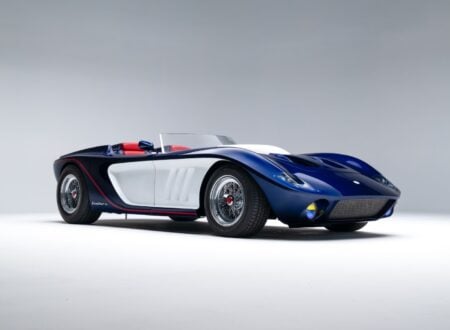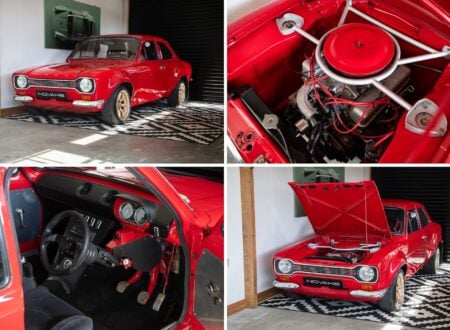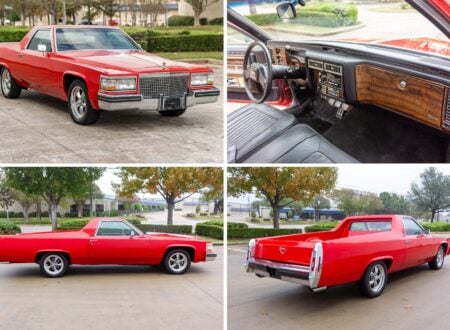This is a 1980 Ford Pinto “Cruising Wagon” with the rare Rallye Pack option and a 4-speed manual transmission. These wagons are hard to come by in good condition as many rusted out or were scrapped years ago.
The Cruising Wagon was developed as an affordable entry point into van ownership in the 1970s, right in the middle of the explosion in popularity of custom vans across the nation. It was targeted at younger buyers and based on the Pinto platform, with porthole rear windows, vinyl decals, bold interior color options, and a carpeted rear.
Fast Facts – The Ford Pinto Cruising Wagon
- The Ford Pinto was released in 1970 as an all-new subcompact car to better compete with the competitively priced Japanese imports of the time.
- The Pinto came in three body styles over its production run, including the two-door fastback sedan, a three-door hatchback, and a two-door station wagon. Both inline-four and V6 engine options were offered, as well as 4-speed manual or 3-speed automatic transmissions.
- Sales of the Pinto were strong, with 352,000+ sold in the first full year, rising to well over a half a million in annual sales by 1974. Sales began to taper off as the 1970s progressed, and the car eventually left production in 1980.
- The car you see here is a rare Ford Pinto Cruising Wagon, a two-door station wagon that had porthole rear windows and a series of features targeted at younger buyers, including a front spoiler, a vinyl decal package, bright upholstery options, and an aggressive marketing campaign.
- This vehicle also has the Rallye Pack option, and unusually for a Pinto it has enjoyed a fresh coat of paint. It’s riding on polished 13″ slotted wheels, it has a red vinyl and patterned cloth interior with a carpeted rear, air conditioning, and a Philco AM/FM stereo.
The Vansploitation Pinto
The custom van movement of the 1970s was, in some respects, the new generation’s version of what the hippie movement VW vans had been in the 1960s. The custom vans of the 70s were far less flowery than their predecessors, with a darker more gritty tone characterized by fantasy airbrushed art, thick carpets, bubble windows, and questionable amounts of velvet.
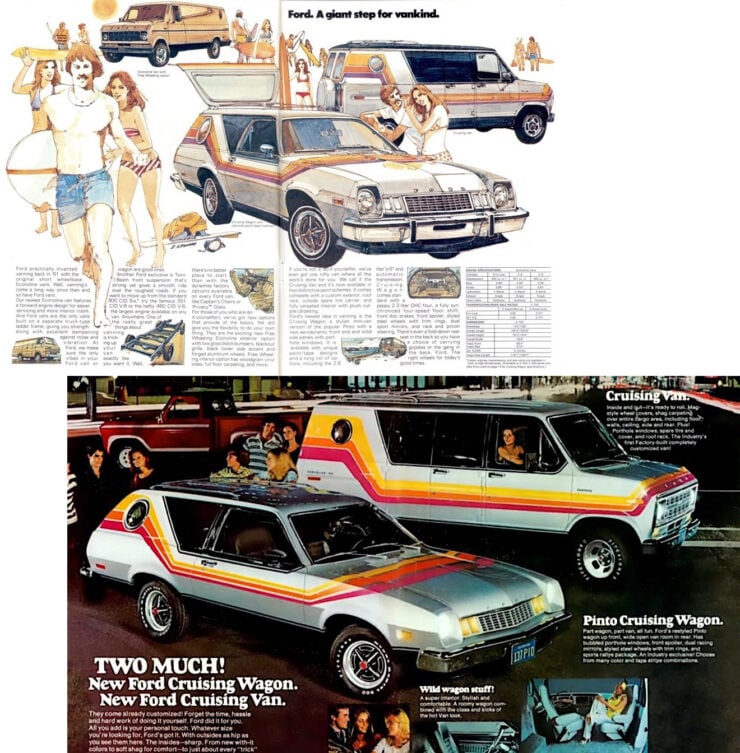

When the Ford Pinto was first released in September of 1970 it came in two body styles, a two-door fastback sedan and a three-door hatchback. In 1972 the two-door station wagon debuted, but it wouldn’t be until 1977 that the Pinto Cruising Wagon became available.
The Pinto Cruising Wagon was developed on the two-door station wagon Pinto body but it featured a van-style rear with bubble porthole windows, colorful vinyl decals down the sides, and a carpeted rear. The Cruising Wagon was an unabashed attempt by Ford to tap into the popularity of the custom van movement and boost Pinto sales which had begun to show significant signs of waning.
The custom van movement was a behemoth in the 1970s, there were countless magazines dedicated to the genre, as well as a whole new category of films dubbed “Vansploitation.”
The Pinto Cruising Wagon could be ordered either with the inline-four cylinder 2.3 liter engine with a single overhead cam and eight valves offering 89 bhp and 118 lb ft of torque, or the 2.8 liter V6 with 93 bhp and 140 lb ft of torque.
Most buyers opted for the four-cylinder option as it was both cheaper and more fuel efficient, and in the wake of the 1973 Oil Crisis many American buyers considered fuel economy a paramount concern. This was a far cry from a decade earlier with the primary focus seemed to be on cubic inches and melted rear tires.
When the Cruising Wagon version of the Pinto debuted in 1977 Ford had high hopes for it, sadly these hopes would never be realized with relatively dismal sales of just 10,029 for the year, followed by an even worse 5,329 in 1978. Sales would never recover, but the Cruising Wagon remained in the line up for two more years until the Pinto was replaced in 1980.
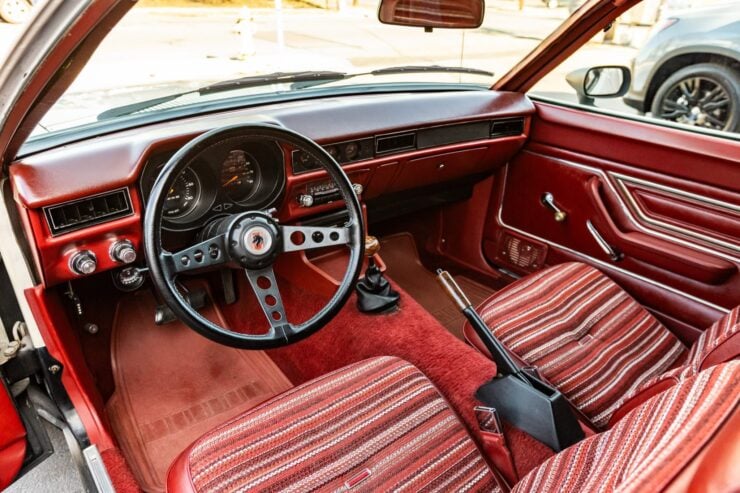

For many years the Pinto was seen as almost a punchline by many, some still hold this view, but rarer versions of the car are starting to approach collector status in the wider automotive community. Events like Radwood have helped greatly, making owners of well-sorted Pintos into celebrities when they arrive at shows.
The 1980 Pinto Cruising Wagon Rallye Pack Shown Here
The car shown here is an original 1980 Ford Pinto Cruising Wagon, and unusually it also has the Rallye Pack option. This vehicle was ordered with the SOHC inline-four and the 4-speed manual transmission, finished in white with black and orange lower body decals.
The Rallye Pack came with a black front spoiler, a black luggage rack on the roof, black paint on the lower side of the vehicle with the “Rallye” decal, and a black rear lift gate with an orange accent to match the sides.
This car benefits from a respray and it’s still fitted with the original 4-speed manual transmission, it has polished 13″ slotted wheels fitted with 175/70 General Altimax RT43 tires, and it has both power steering and front disc brakes.
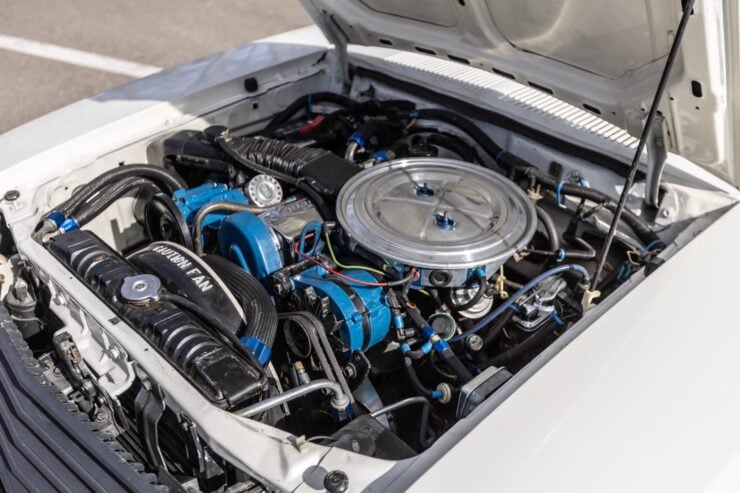

Air conditioning is also fitted, as well as a wooden shift knob, a Philco AM/FM stereo, and a classic rally-style three-spoke steering wheel. The interior of the car is almost all red, with red carpeting, red floor mats, red door cards, and red vinyl and patterned cloth seats front and back.
The car is now being offered for sale out of Berwick, Pennsylvania on Bring a Trailer with 93,000+ miles showing on the odometer, a build sheet, manufacturer’s literature, service records, an airbrushed display sign, and a clean Pennsylvania title. If you’d like to read more about it or place a bid you can visit the listing here.
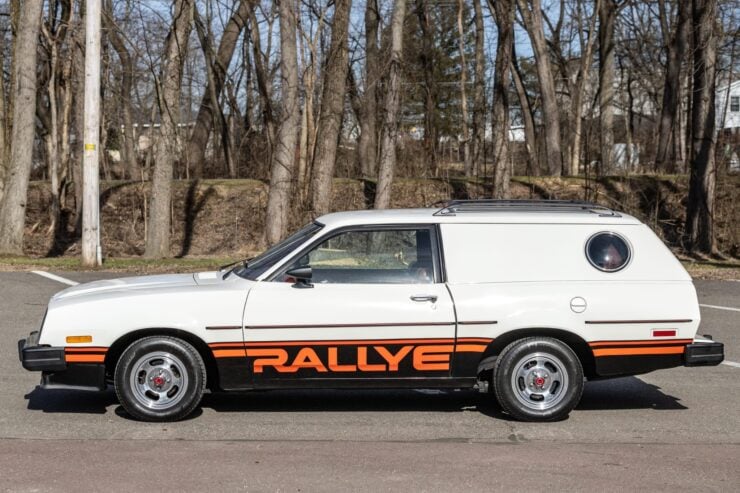
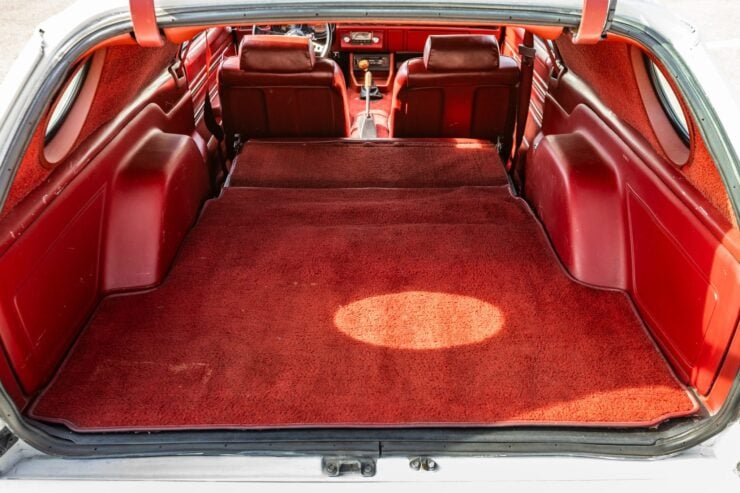
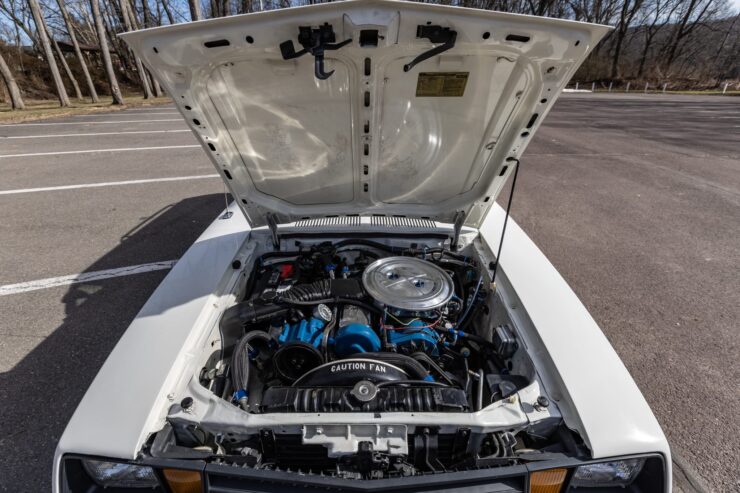
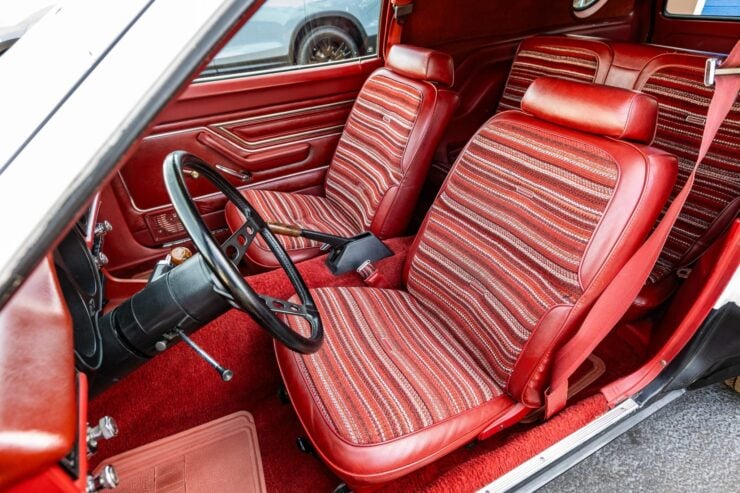
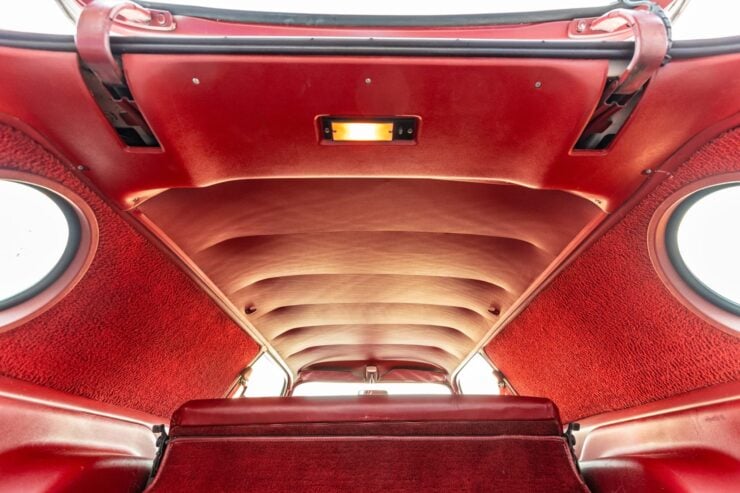
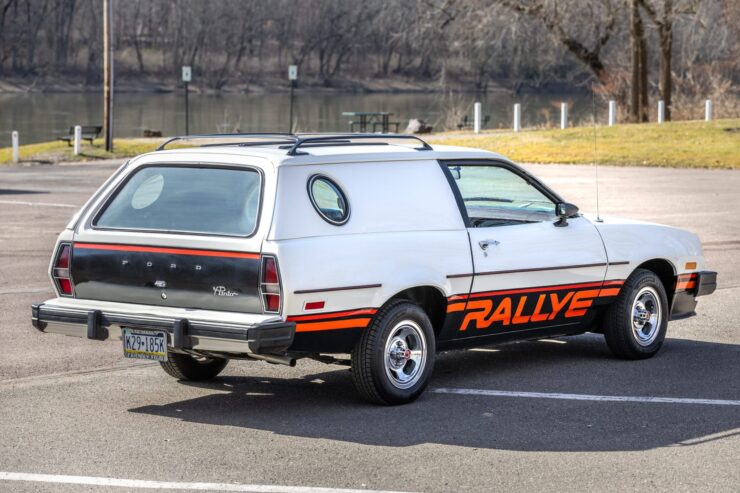
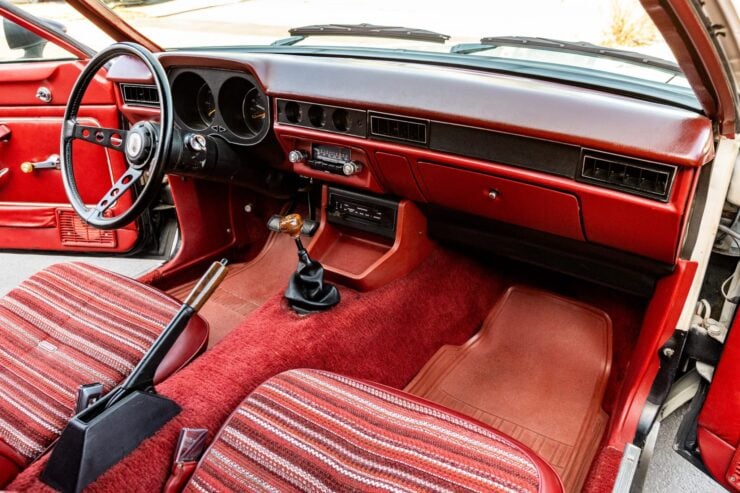
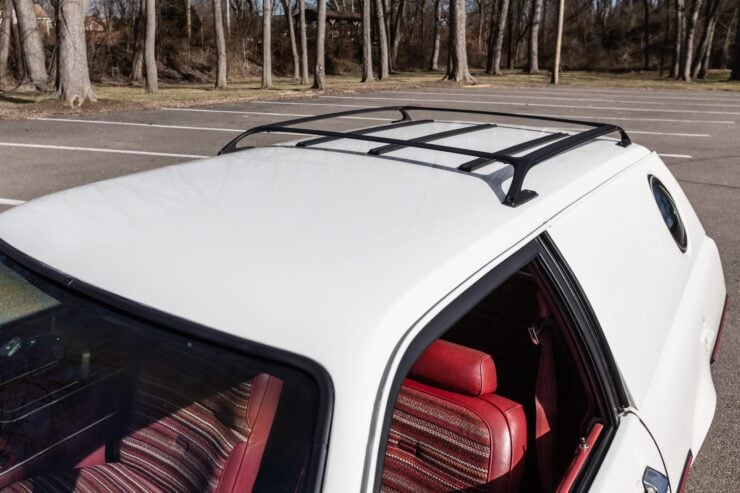
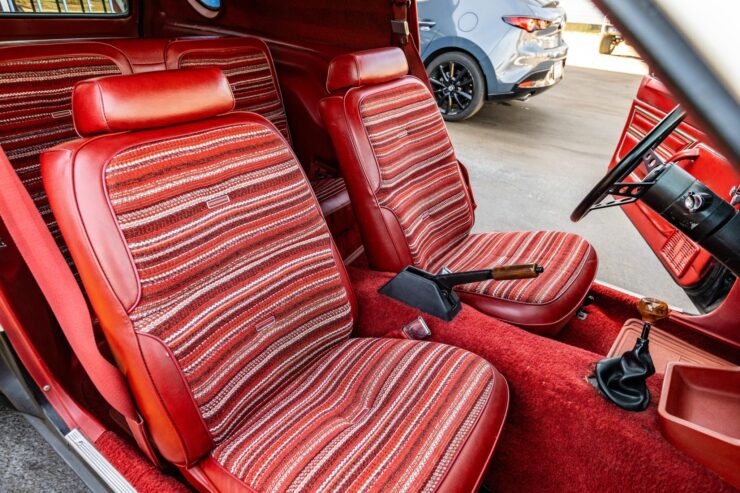
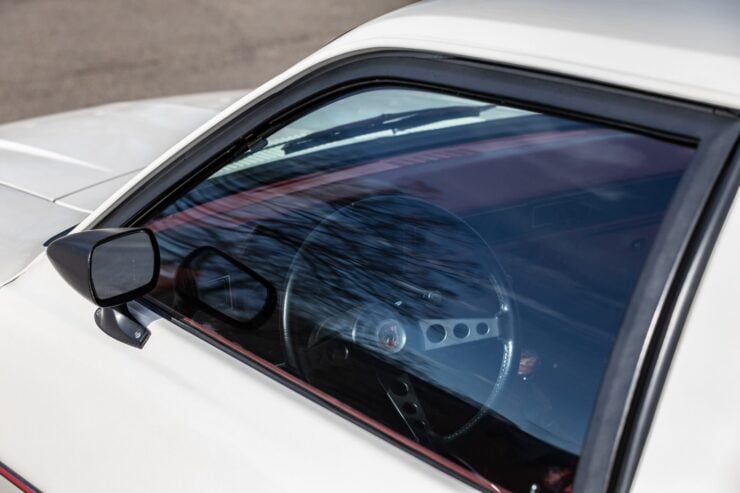
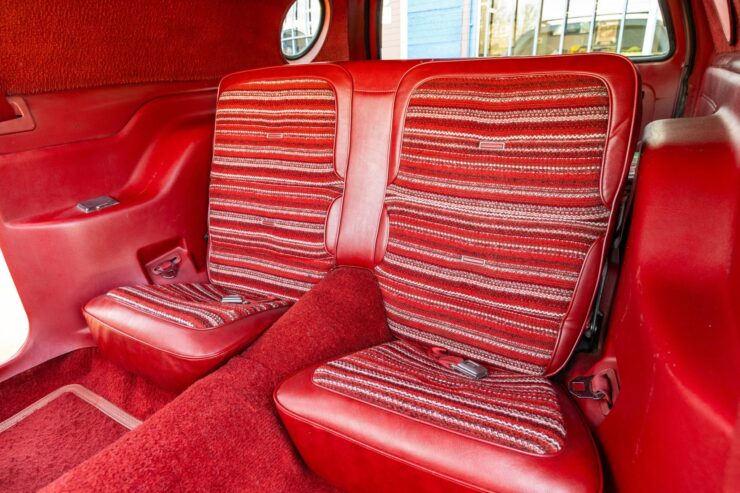
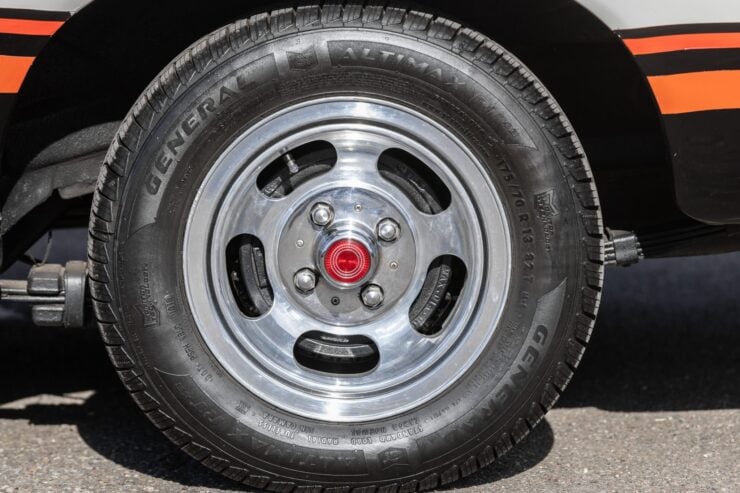
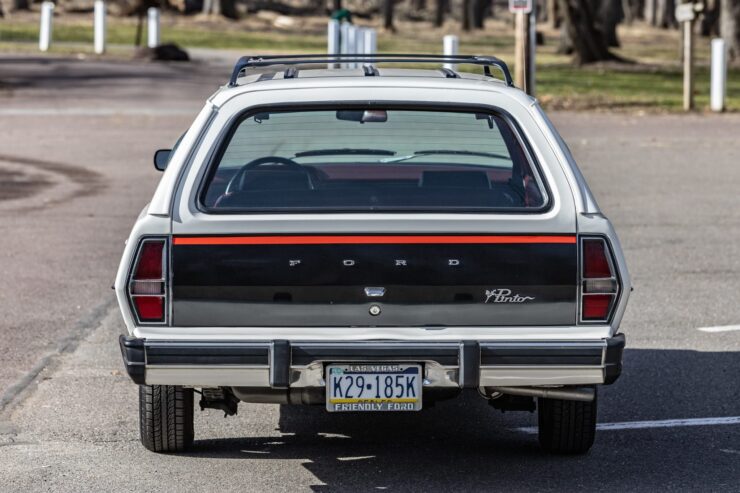

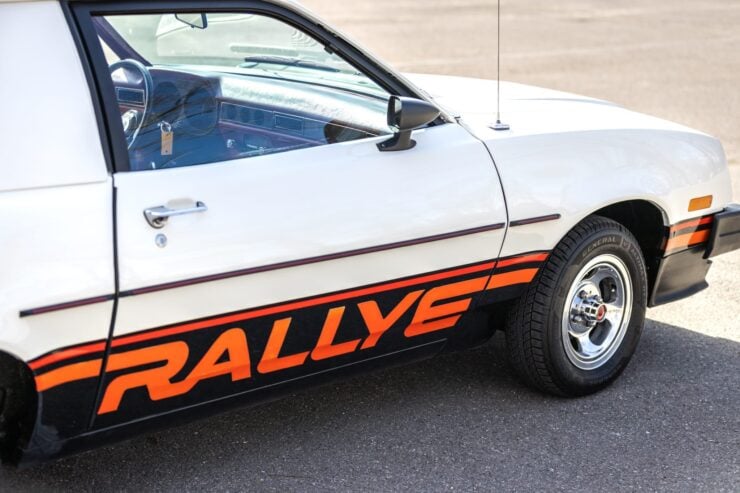
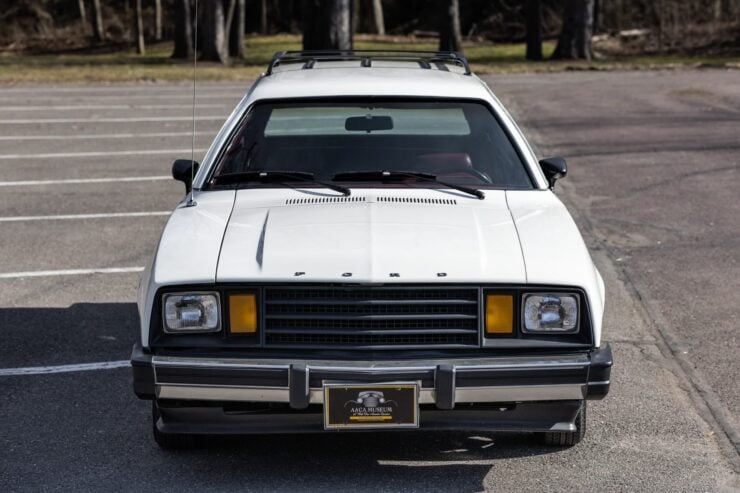
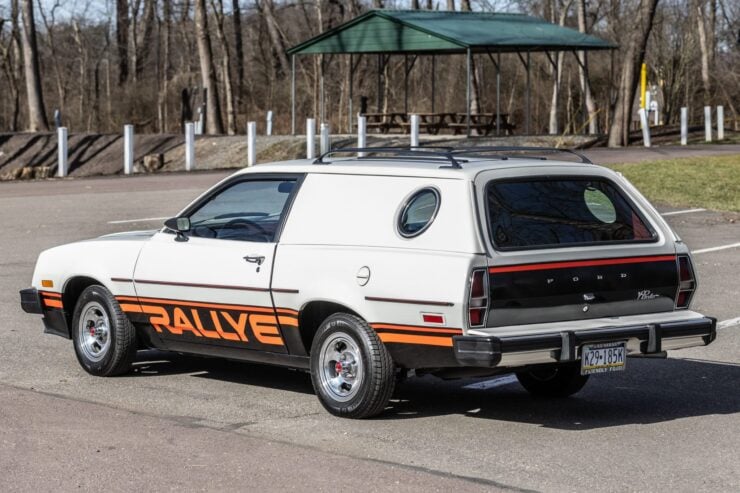
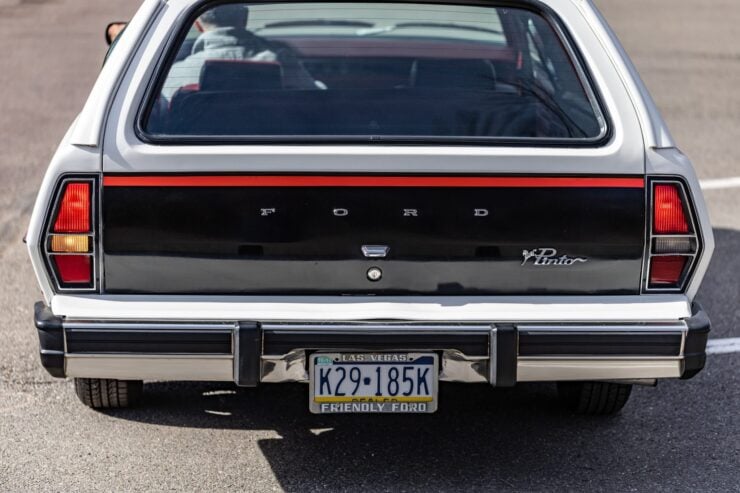
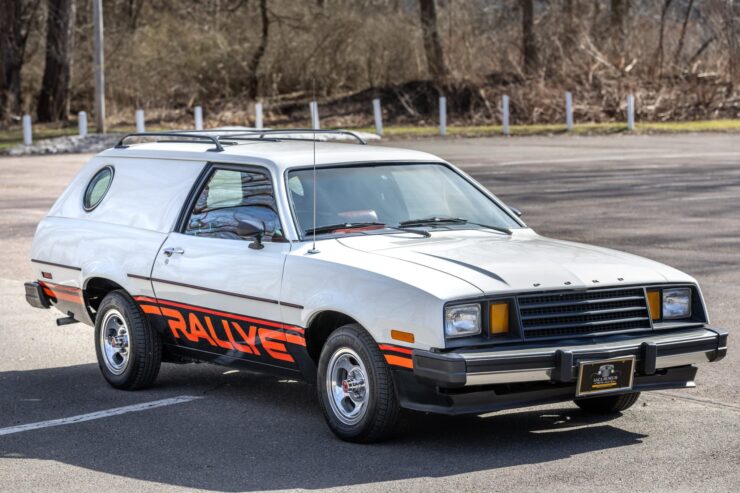
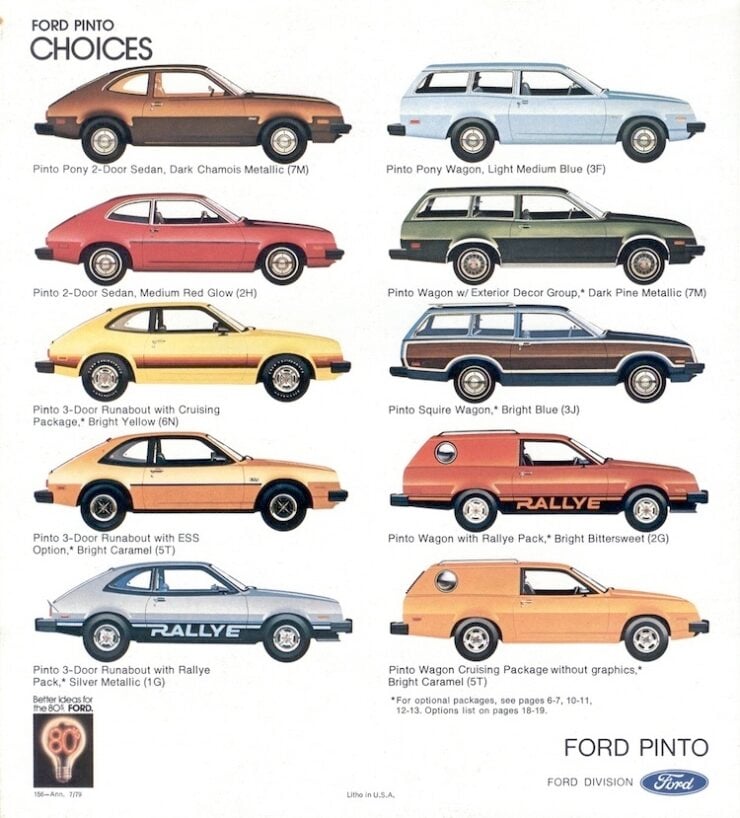
Images courtesy of Bring a Trailer

